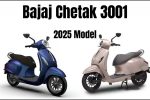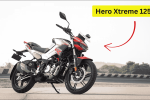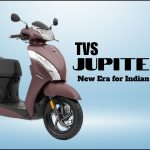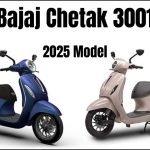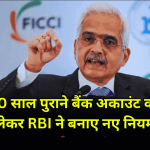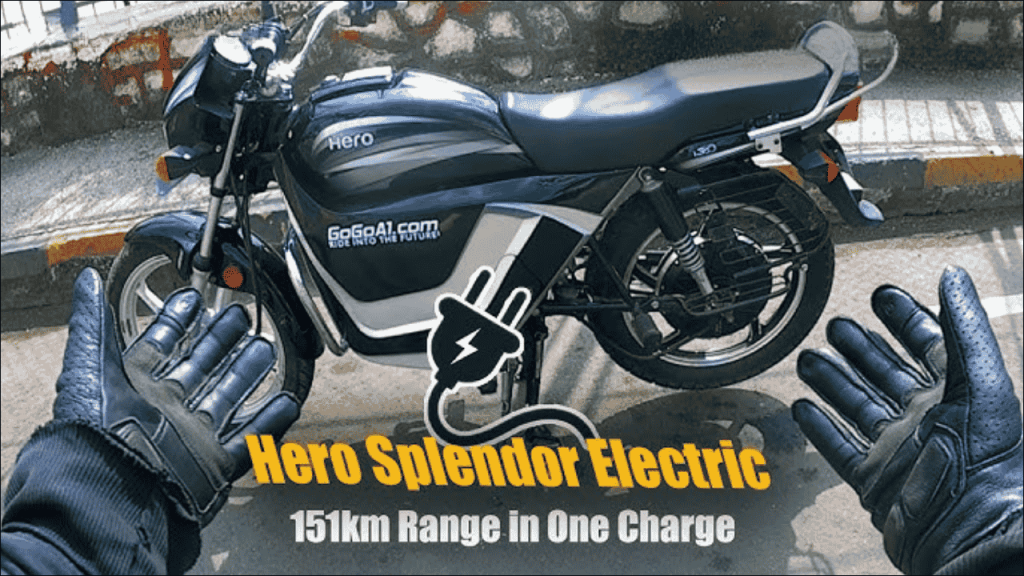
The iconic Hero Splendor, a motorcycle that has been the backbone of Indian commuting for decades, is poised to make a revolutionary leap into the electric mobility sector. According to industry reports, Hero MotoCorp is preparing to launch an electric version of its best-selling Splendor with an impressive 200km range. This ambitious move represents not only a significant milestone for India’s largest two-wheeler manufacturer but also signals a potential tipping point for mass-market electric mobility in the country.
The Legacy Continues: From Petrol Icon to Electric Pioneer
The Hero Splendor has earned its place as one of India’s most recognizable and trusted two-wheeler brands, having put millions of Indians on wheels since its introduction in 1994. As the transition to electric mobility accelerates globally, Hero MotoCorp’s decision to electrify its flagship model demonstrates the company’s commitment to evolving with changing market demands while preserving the core values that made the Splendor a household name.
The electric Splendor is expected to maintain the familiar silhouette and approachable design philosophy of its petrol counterpart, ensuring brand recognition while incorporating the necessary modifications to accommodate the electric powertrain. This strategic approach aims to ease the transition for loyal Splendor customers who may be considering their first electric vehicle purchase.
Groundbreaking Technology: The 200km Range Game-Changer
The most headline-grabbing feature of the upcoming Hero Splendor Electric is undoubtedly its 200km range on a single charge. This figure represents a significant advancement for electric two-wheelers in India, where range anxiety has been a primary barrier to adoption.
Technical Specifications (Expected)
| Feature | Specification | Benefit |
|---|---|---|
| Battery Capacity | 4kWh (estimated) | Balances range and weight requirements |
| Motor Power | 9kW (approximately 12 HP) | Comparable power to 125cc petrol motorcycles |
| Top Speed | 90-100 km/h | Sufficient for both urban and highway riding |
| Charging Time | 4-6 hours (standard charging) | Overnight charging convenience |
| Fast Charging | 0-80% in 1 hour (optional) | Enhanced practicality for longer journeys |
| Range | 200km on single charge | Eliminates range anxiety for daily commutes |
| Battery Type | Advanced Lithium-ion | Optimized for Indian climate conditions |
| Riding Modes | Eco, City, and Sport | Customizable performance and range options |
The engineering team at Hero’s technology center in Jaipur has reportedly developed a proprietary battery management system that optimizes energy usage based on riding conditions, helping to achieve the impressive range figure while maintaining performance characteristics familiar to Splendor riders.
Market Positioning and Target Audience
Hero MotoCorp appears to be targeting its existing customer base with the electric Splendor while also appealing to environmentally conscious urban commuters looking for a reliable, long-range electric option.
Customer Segment Analysis
| Segment | Characteristics | Value Proposition |
|---|---|---|
| Current Splendor Owners | Brand loyal, value-conscious | Familiar experience with lower running costs |
| Urban Commuters | Tech-savvy, environmentally aware | Zero emissions with practical range |
| Rural Users | Reliability-focused, cost-sensitive | Reduced maintenance, long-term savings |
| Gig Economy Workers | High daily mileage, cost-conscious | Lower per-kilometer running costs |
| First-time EV Buyers | Cautious about technology | Trusted brand with proven reliability |
The 200km range positions the Splendor Electric as a viable option for a much broader segment of users, including those who previously considered electric two-wheelers impractical for their needs due to limited range capabilities.
Economic Impact: Operating Costs vs. Initial Investment
While the purchase price of the Splendor Electric is expected to be higher than its petrol counterpart, the economic calculation becomes favorable when considering total cost of ownership over the vehicle’s lifetime.
Comparative Cost Analysis (Estimated)
| Parameter | Petrol Splendor | Splendor Electric |
|---|---|---|
| Purchase Price | ₹75,000-85,000 | ₹1,10,000-1,30,000 (expected) |
| Cost per km | ₹2.50-3.00 | ₹0.40-0.60 |
| Annual Fuel/Electricity Cost* | ₹24,000 | ₹4,800 |
| Annual Maintenance Cost | ₹4,000-6,000 | ₹1,500-2,500 |
| Lifetime Cost (5 years) | ₹2,25,000+ | ₹1,75,000+ |
| Carbon Footprint | 2.3 tons CO₂/year | Minimal (charging dependent) |
*Based on 30km daily usage, 6 days per week
The significantly lower operating costs make a compelling case for the electric variant, especially for high-mileage users such as delivery personnel and daily commuters.
Feature Set: Blending Tradition with Innovation
The Splendor Electric is expected to maintain the approachable simplicity that has been a hallmark of the petrol model while incorporating modern features that enhance the ownership experience.
Expected Features
- Digital instrument cluster with connectivity features
- Regenerative braking with adjustable intensity
- Remote diagnostics and battery health monitoring
- Mobile app integration for location tracking, ride statistics
- LED lighting throughout for enhanced visibility and efficiency
- USB charging port for mobile devices
- Smart key functionality with anti-theft protection
- Dedicated storage compartment for charging cable
These additions bring the Splendor firmly into the modern era without overwhelming users with complexity or unnecessary gadgetry that could detract from the model’s legendary reliability.
Manufacturing and Development
Hero MotoCorp has reportedly been developing the electric Splendor under the project codename “AEDA” at their technology center in Jaipur. The company is leveraging its experience from the Vida electric sub-brand to create a mass-market product that meets the durability and reliability standards expected of the Splendor nameplate.
Production capacity is being prepared for approximately 200,000 units annually, indicating the company’s confidence in consumer adoption. This scale also allows for more competitive pricing through economies of scale in battery procurement and manufacturing efficiencies.
Competitive Landscape: Setting New Benchmarks
The Splendor Electric’s 200km range positions it favorably against current and upcoming competitors in the electric motorcycle segment.
Competitive Comparison
| Model | Range | Price Range (expected) | Key Differentiator |
|---|---|---|---|
| Hero Splendor Electric | 200km | ₹1,10,000-1,30,000 | Established brand, superior range |
| Revolt RV400 | 150km | ₹1,24,000+ | Performance-oriented, swappable battery |
| Tork Kratos | 180km | ₹1,22,000+ | Sporty design, faster acceleration |
| Ola S1 Pro (scooter) | 160km | ₹1,40,000+ | Tech features, faster charging |
| Upcoming Bajaj Chetak electric bike | Unconfirmed | Expected ₹1,20,000+ | Premium build quality |
The Splendor Electric’s combination of trusted brand value, exceptional range, and competitive pricing could potentially disrupt the market and accelerate EV adoption in India’s largest two-wheeler segment.
Environmental Impact
Beyond the economic benefits, the Splendor Electric represents a significant step toward reducing emissions in India’s transportation sector. With millions of petrol-powered two-wheelers on Indian roads, the electrification of a model as popular as the Splendor could have substantial environmental benefits.
A single petrol Splendor typically produces approximately 2.3 tons of CO₂ annually (based on average usage patterns). If Hero achieves its production target of 200,000 electric Splendors annually, this could potentially prevent over 460,000 tons of CO₂ emissions each year once these vehicles replace their petrol counterparts.
Challenges and Considerations
Despite the promising specifications and market potential, several challenges remain for the successful adoption of the Splendor Electric:
- Charging Infrastructure: While the 200km range reduces dependence on public charging, the availability of charging facilities remains limited in many areas.
- Initial Cost Barrier: The higher upfront cost compared to petrol variants may deter some budget-conscious buyers despite lower lifetime costs.
- Battery Longevity: Consumer confidence in battery life and replacement costs remains a concern for many potential EV buyers.
- Service Network Readiness: Hero will need to ensure its extensive service network is fully trained and equipped to handle electric vehicle maintenance.
Hero MotoCorp is reportedly addressing these challenges through strategic partnerships for charging infrastructure, potential financing schemes to mitigate initial costs, comprehensive battery warranties, and an accelerated service network training program.
Market Impact and Future Roadmap
The Splendor Electric with its 200km range is just one component of Hero MotoCorp’s broader electric vehicle strategy. According to industry sources, the company plans to introduce multiple electric two-wheeler models across various segments by 2027, including high-performance motorcycles and specialized offerings like electric dirt bikes.
The launch of the Splendor Electric represents a pivotal moment in India’s EV journey, potentially normalizing electric mobility for the masses rather than positioning it as a premium alternative. If successful, this model could accelerate the transition timeline for India’s shift to electric mobility.
Conclusion
The imminent launch of the Hero Splendor Electric with its game-changing 200km range marks a significant milestone in India’s electric vehicle landscape. By electrifying its most iconic model, Hero MotoCorp is making a bold statement about the future direction of mass-market mobility in India.
The combination of familiar design language, trusted brand value, practical range, and reasonable economics positions the Splendor Electric to potentially replicate the success of its petrol counterpart in the electric era. For consumers, this represents an opportunity to embrace electric mobility without the compromises that earlier electric two-wheelers often required.
As launch details become more concrete, potential buyers and industry observers alike will be watching closely to see if the electric Splendor can indeed become the catalyst that drives mass adoption of electric two-wheelers in India.
FAQs
Q: Will the Hero Splendor Electric require special charging infrastructure? A: No, it will come with a standard home charging unit that works with regular domestic power outlets.
Q: How does the maintenance schedule of the Splendor Electric compare to the petrol version? A: The electric variant requires significantly less maintenance, with no oil changes and fewer moving parts that can wear out.
